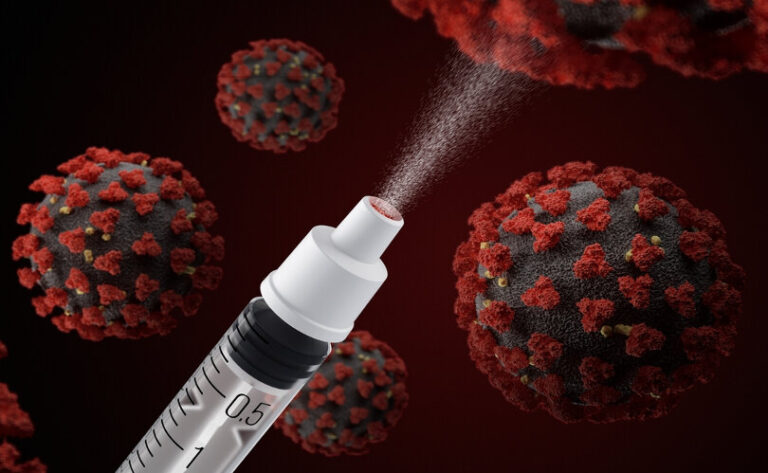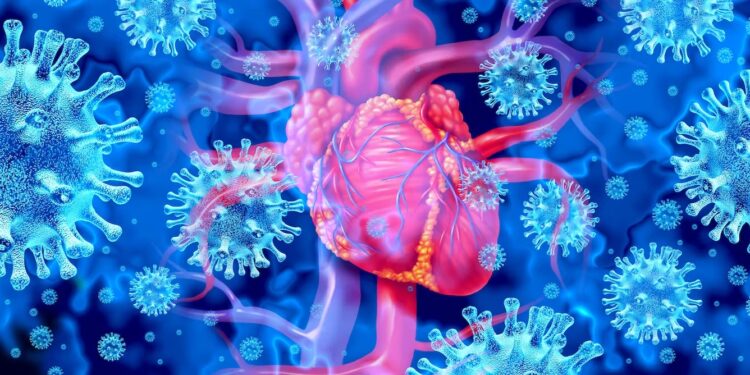COVID-19 Vaccines ‘May Trigger’ Rheumatic Inflammatory Diseases: Study

On average, patients developed rheumatic diseases 11 days after vaccine administration, according to the study.
According to a new study, COVID vaccines “may trigger” rheumatic immune-mediated inflammatory diseases like Still’s disease, arthritis, vasculitis, and lupus that start in adults.
The study found that, on average, patients got rheumatic diseases 11 days after getting the vaccine. Seventy-five of these patients (more than 27%) had their disease go away completely, and about half of them got better after treatment. Eight were taken to intensive care, and two of them died from their symptoms.
“The short time span between COVID-19 vaccine administration and the onset of R-IMIDs suggests the potential possibility of a cause-and-effect relationship,” they wrote.
Inflammation shows up in the joints, tendons, muscles, and bones for no clear reason in rheumatic immune-mediated inflammatory diseases (R-IMIDs).
Researchers from the National Health Service in the UK led the study, which looked at 271 people from 190 case studies published around the world.
More than 80% of the people who got the COVID-19 vaccine started to feel sick after the first or second dose, and most of them got better with corticosteroids.
AstraZeneca gave vaccines to about 24% of injured patients and Pfizer gave vaccines to about 57% of injured patients. Rheumatic diseases showed up in 12% of people who got the Moderna vaccine.
Reports of Diseases
Some rheumatic diseases may not be as common as myocarditis, which is a known side effect of the COVID vaccine. Many people have reported bad reactions to the COVID-19 vaccine. There have been over 3,000 cases of myocarditis, over 2,300 cases of arthritis, over 370 cases of systemic lupus erythematosus (the most common type of lupus), and 280 cases of vasculitis. The following rheumatic diseases were looked at in this first-ever systematic review of R-MIDs that started after getting COVID.
Blood vessel inflammation
Vasculitis, which caused 86 adverse events, was the most common rheumatic disease in the study. Vasculitis diseases that happen more often affect the smaller blood vessels. They can damage organs and leave red spots and lumps on the skin. Damage can also happen to medium and large blood vessels, which can hurt tissue, muscles, and kidneys.
One patient with inflammation in the larger blood vessels had a lot of fluid in her lungs. Another person had swelling in the arteries in his head and lost vision in his left eye because his optical nerves weren’t getting enough blood.
Diseases of the connective tissue
There were 66 diseases that affected the connective tissues. Lupus, an autoimmune disease that affects the skin, joints, and internal organs, and myositis and dermatomyositis, which cause inflammation of muscles and tissues, are all in this group.
Two of the patients died from their illnesses. One was a 44-year-old man who got compartment syndrome and myositis, which means swollen muscles. When pressure builds up in muscles, it’s called compartment syndrome. It’s painful and could be fatal. Another woman, 62 years old, died after getting the Pfizer vaccine and then getting diabetes and dermatomyositis, which is inflammation of the skin and muscles.
Joint pain
Fivety of the people who got the vaccine later got arthritis, mostly in their knees, elbows, and ankles.
Most people who were treated with steroids saw some improvement in their symptoms. Twelve people went into remission, and two people still had symptoms.
Adults can get Still’s disease.
Two dozen cases of Still’s disease that starts in adults were included in the report. People who have this rare disease get fevers every day, arthritis in more than five joints, and salmon-pink rashes all over their bodies. Six of these patients also had heart problems, and two of them got myocarditis and heart failure.
All but five of the patients got better after being treated with steroids, and five of them went into remission.
Other Illnesses
Polymyalgia rheumatica is a less common disease that has been found in 21 people. Shoulders, neck, and hips that are stiff and inflamed are signs of this disease. Sarcoidosis happens when inflamed tissues start to grow inside organs, which makes tissues not work properly.
The main explanation is molecular mimicry.
The authors pointed out that the time between getting a vaccine and showing symptoms was very short, with 11 days being the average. This length of time is similar to what other studies that looked into myocarditis side effects after COVID-19 vaccines found. The writers thought that the vaccine might have caused the rheumatoid diseases.
The authors thought that some of the patients might have been more likely to get rheumatic diseases, though. Some people may also have been more likely to have a very bad reaction to mRNA vaccines, which could have caused rheumatic symptoms like stiff joints and swelling.
The main reason these autoimmune diseases happen is molecular mimicry, which is when the body mistakes foreign substances for its own and launches an immune response. The writers thought that aluminum and other vaccine adjuvants might have structures that are similar to human proteins. So, it’s possible that the body attacked these adjuvants instead of self-tissue because it thought they were foreign invaders.
However, many studies have shown that the spike proteins on the COVID-19 virus’s surface are structurally similar to proteins found in humans. It was found in one study that antibodies that responded to spike protein could also respond to almost 30 different types of animal tissue. If the spike proteins caused by the COVID-19 vaccines are the same as the spike proteins found in the virus, then the vaccine spike proteins may also cause autoimmunity.
Inflammasomes may also be formed by mRNA vaccines, which is another possibility. Inflammasomes are groups of proteins that tell the body to get rid of viruses and cause inflammation. This can also make immune cells work too hard and hurt self-tissues as they try to get rid of the vaccine.





